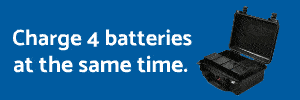ds of photographers that operate their business just as I do. It works! It's great! It's free enterprise and what's great about this country! I'm not against some kind of regulated system completely. I think it's smart to set apart the profe
Apples and oranges, if you read my post I easily show that in this case the government is making up rules that only apply if your making money, but otherwise your free to do as you please! It hurts the free enterprising citizen that is working hard to simply provide for his family doing something he is good at and does with proffesionalism and integrity!
Example: I also have a photography side business taking family photos, head shots, portraits, weddings, babies, etc...! It's my own run business that I manage and all. Except for paying taxes I don't worry about the government coming in and regulating me to the point of shutting me down. There are thousands of photographers that operate their business just as I do. It works! It's great! It's free enterprise and what's great about this country! I'm not against some kind of regulated system completely. I think it's smart to set apart the professionals and show proof of competency, but what the government is doing with the situation and program right now is just ridiculous! They are dragging their feet on the issue and in the meantime creating much headache for people relying on this business to survive!
I recently read an article where our "fearless leader" addressed the issue of the Phantom Landing on his front yard. Where he stated that the issue is great since you can pick up this "drone" from any RadioShack! Perfect example of our government being highly misinformed and making stuff up just to cause panic and regulate something that they know nothing about! All I'm saying is, inform yourself and don't believe everything that is said, just because it comes from the government! We have to stand up for ourselves and push back a little! Not be bullied! "By the people, for the people" right???
I read your post and I even understood it. My statement still stands. You're just mad because you have to pay for operating costs to operate your uav/inspire in the nas as per the faa for commercial use. Operating costs are nothing new to a business. It's not apples and oranges. Yes you can go out and take your photos of your babies or whatever and just pay taxes on it and be fine, you don't need a business license because you're operating as a freelance technically, but now you're flying a machine, even though it's unmanned, you're operating with other aircrafts even though we are to stay below the 500ft limit of those aircrafts we are still in the air with them. I mean let me ask you this, why didn't you pursue this venture using the traditional helicopter? probably because the operating costs were very high, right? I mean, you need a pilots license, you need a commercial pilots license to make money, all the schooling so you can get said licenses, you need to buy the helicopter, and if you're whole thing is to get aerial video/photo than you need a camera pack as well and etc etc etc...I hope you can see here that the operating costs are starting to stack to a very substantial amount, well into six figures and beyond. Lets go to another business...I want to start a food truck, I need a food handlers permit, and a license to get a tax id so I can file my quarterly earnings, I need a truck with a kitchen or I need to build said kitchen in a used fedex truck (or whatever they do) I need a drivers license (if I don't already have one) I need insurance so if while I'm driving around I hit someone or someone hits me I'm not screwing myself out of those quarterly earnings. I think you're confused because for the last 30-40 years rc airplanes has been around, it's been a hobby but now that its so trendy these days to start a uav business, yes operating costs are going to come into play because yes the government wants their cut of your business, just like any other business, even down to your marriage (that's why you need a marriage license.) I'll even use the example that I use the most, roofers, sure you can call up some guy lets call him Bob, BOBS ROOFING, he isn't licensed or insured or even bonded. He just likes to roof because it's so much fun for him, and he does it on the cheap because he isn't licensed, bonded, or insured. Now Bob is working on your roof and he falls and takes a substantial injury that jepordizes his future in his roofing hobby (remember it's a hobby for him not a business) right in your front lawn...After some thinking Bob slaps you with a lawsuit (**** move, right?) becuase he knows he's screwed and since he was working on your roof when he fell he might as well screw you too. So now your homeowners insurance has to payout a few hundred thousand dollars becuase you wanted to save some money by going with the hobbyist vs a commercial enterprise that would've been licensed bonded and insured, therefore you wouldn't have this problem on your hands with the ******* that is Bob.
To add even more the only other reason people are upset is because on one hand uav's are fairly inexpensive these days, so they feel the financial gain is great...but you actually have to pay all these costs to basically (back to roofer bob) be licensed, insured, bonded, and you actually up your cost to your clients for that. As a freelance videographer who works out of my home, I can charge $500 for some projects...Now if I upgraded to a studio and took on another employee or partner, I up my cost so that same project is now $1000, I have lease for my studio afterall, but now I'm also more official, clients have a storefront they can visit to see their project, vs me inviting them to my home. So you see how you kinda roll the costs to your client here.
Of course you can operate freely as a hobbygrade user...and take a cash payment and keep it off the books, but what about that moment your filming a home for a real estate agent and you accidentalyl lose control and crash through the window.





